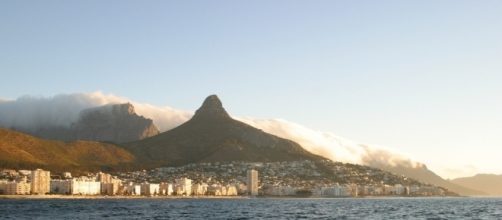Cape Town (South Africa) -- The vast majority of South Africans live inpoverty not knowing where the next meal is coming from. Cape Town's population according to a 2011compilation is3,740,026 of which over 67 percent is in abject poverty. (Any government statistics would be outdated.) However this is not a true reflection of the living conditions of the people here.
According to my estimate more than 80 percent are living in poverty. Unemployment is 47 percent whichleads to criminality. The gang violence in the city of Cape Town -- as is the case all over the country -- is uncontrollable.
The present South African government hides the gang violence from the tourists andadvertises in glossy brochures how beautiful South Africa is, but in fact it's the opposite -- it's an ugly scenario of death, violent death.
Affluent versus impoverished - have & have not
Our story rotates around Cape Town. It is a city of the super rich versus the super poor. In South Africa four percent owns 80 percent of the wealth, mostly former colonialists' descendants who inherited stolen land and stolen gold and diamond mines.
South Africaproduces 80 percent of the world's gold and 75 percent of the world's diamonds -- yet 30 percent are dying of malnutrition, and 80 percent live below the bread-line, in dire abject poverty.
The result is gangsters. Gangs and more gangs springing up. Their gang names are: Americans, School Boys, Sexy Boys, Hard Livings, Naughty Boys, Mongrels, Kasbahs, the list is endless.
Cape Town is a bloody war zone and itis divided into the rich and beautiful and the ugly places for the impoverished. Dan Plato Western Cape minister of community safety says: he's trying to save the children from joining dangerous gangs and trying to prevent them from taking drugs. He feels it is the environment that has caused them to become gangsters. He says: "Children as young aseight shoot people dead because the law of the land says under age children cannot go to jail even though they are murderers. Gangsters use these under-age kids to kill after they have been pumped with drugs."
Plato has put in placea comprehensive programme wherebyhegets help fromthe churches and schools to keep these kids off the streets.
So far within five yearshe has brought over 10 000 gangsters to civilian life. He thanplaces them in special designed programmes, get them educated and gets a job for them.
JP Smith Mayor member for safety and security says hundreds of people die in the townships in Cape Town. Heis a tryinghis level best but national government has a lenient law on the war zone in the townships. He says, "Murderers get off lightly and corruption is great."
Drug merchants
Drug merchants are doing business from almost every street in the Cape Flats - the council match-box houses zone. Everybody walks around unemployed and dirty with hands in their pocket. Everyone is a suspect for trying to rob, rape or kill you.
This is what a policeman recently told me. He adds, "school children are the biggest market for drugs andthe biggest market and recruitment ground for gangsters."
He believes school girls on the Cape Flats are selling their bodies after school and during school hours so they can get hold of the drugs and that school children complete their schooling but they stay at home because of no jobs. Consequently the school boys become gangsters and the school girls prostitutes.
Inefficient government
The government cannot solve the dilemma. The poverty issue stems back from the apartheid years where the apartheid government had created job reservations. There are some affluent up-and-coming blacks in South Africa, known as "Black Diamonds," but they are few and it still seems to people living in poverty that it is mostly whites who have any money.

